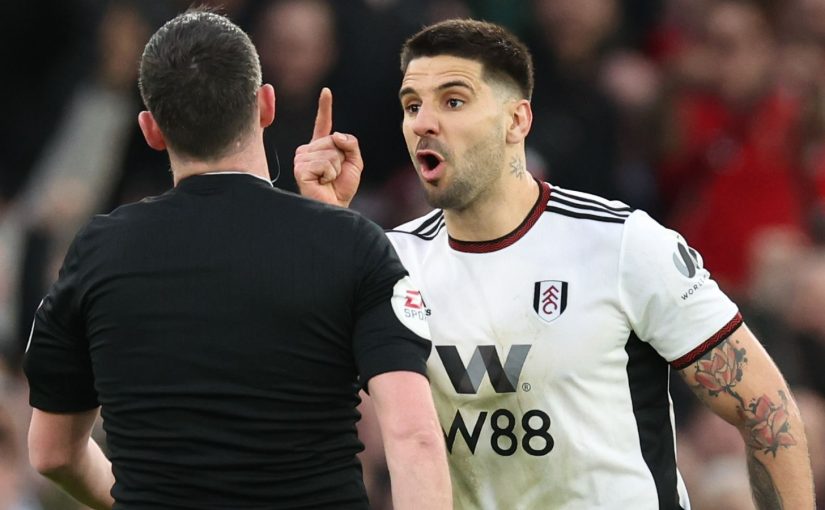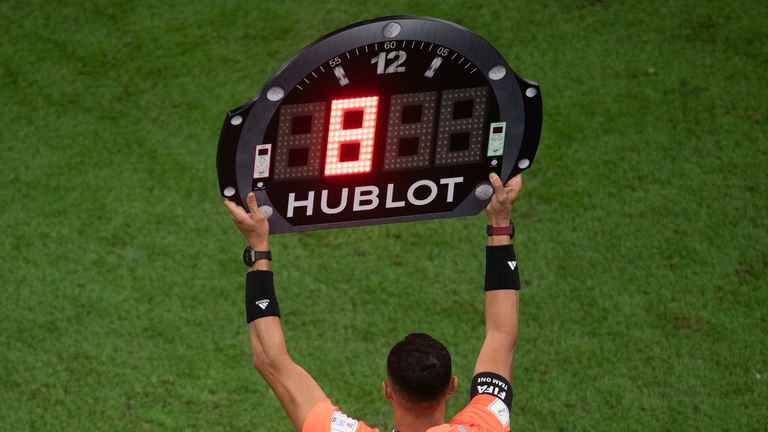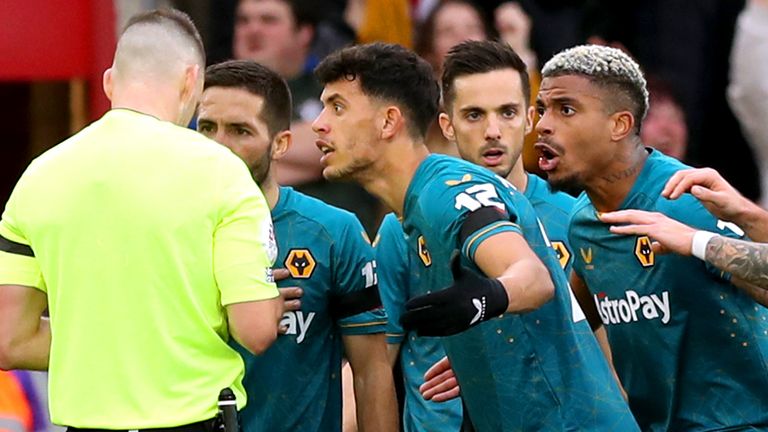A crackdown on time-wasting and dissent as well as a much stricter policing of the bench and technical areas are at the heart of new refereeing guidelines that will be in force for the start of the football season.
From the first Championship game on Friday – which sees Sheffield Wednesday take on Southampton live on Sky Sports – added minutes at the end of EFL and Premier League matches are now expected to frequently run into double digits, as they did at the last World Cup in Qatar.
One match official has told Sky Sports News it will now be a rarity if a top flight game lasts less than 100 minutes.
More accurate game time
Officials have become increasingly concerned with statistics that show how little the ball has been in play in professional matches in England, with averages last season of just 48 minutes in League Two, 50 minutes in League One, 52 minutes in the Championship and just under 55 minutes in the Premier League.
More time will be added on too for goal celebrations, which officials feel have become lengthier and more elaborate.
Referees will now be obliged to specifically time how long the game is stopped before the re-start for game interruptions, such as a goal, a substitution, injury, or preparations for a free-kick.
In further attempts to speed up play, the EFL will now have the multi-ball system for all matches, as is already the case in the Premier League.
Elsewhere, referees will be tasked with being more robust in penalising “clear and impactful actions” that waste time – those that differ from the obvious act of kicking the ball away.
EFL and Premier League football will now bear much more resemblance to the Qatar World Cup, where England vs Iran had 24 minutes of added time and the game lasted a total of 117 minutes. There were, however, two concussion-related injuries, eight goals and 10 substitutions in the 90 minutes.
Leniency on “physical” challenges
On the pitch, as an attempt to allow the game to flow better and reduce stoppages, a higher threshold will be applied to “contact” between players – meaning there should be fewer free-kicks awarded for incidents which last season might well have been penalised for being overly physical.
However, as per the existing referee guidelines, any challenge deemed “careless” will be deemed a foul, any which are “reckless” will receive a yellow card, and any player who “endangers the safety” of an opponent will be sent off.
Dissent
The threshold for a player to be shown a yellow card for dissent will be reduced this season.
Whenever more than one player approaches the referee, at least one of those players, and potentially more, will be shown an automatic yellow card. Practically, any player that runs from a distance to approach the match officials will be booked.
Policing the technical area
The behaviour of managers and their back room staff will come under greater scrutiny, with an automatic yellow card if there is ever more than one coach in the technical area, and harsher penalties for managers that leave their technical area.
Aggression from coaches, towards match officials or opponents, will be routinely met with a red card, and any club official sent off will no longer be allowed to watch the game from the stands. Instead, they must be out-of-sight of the pitch.


